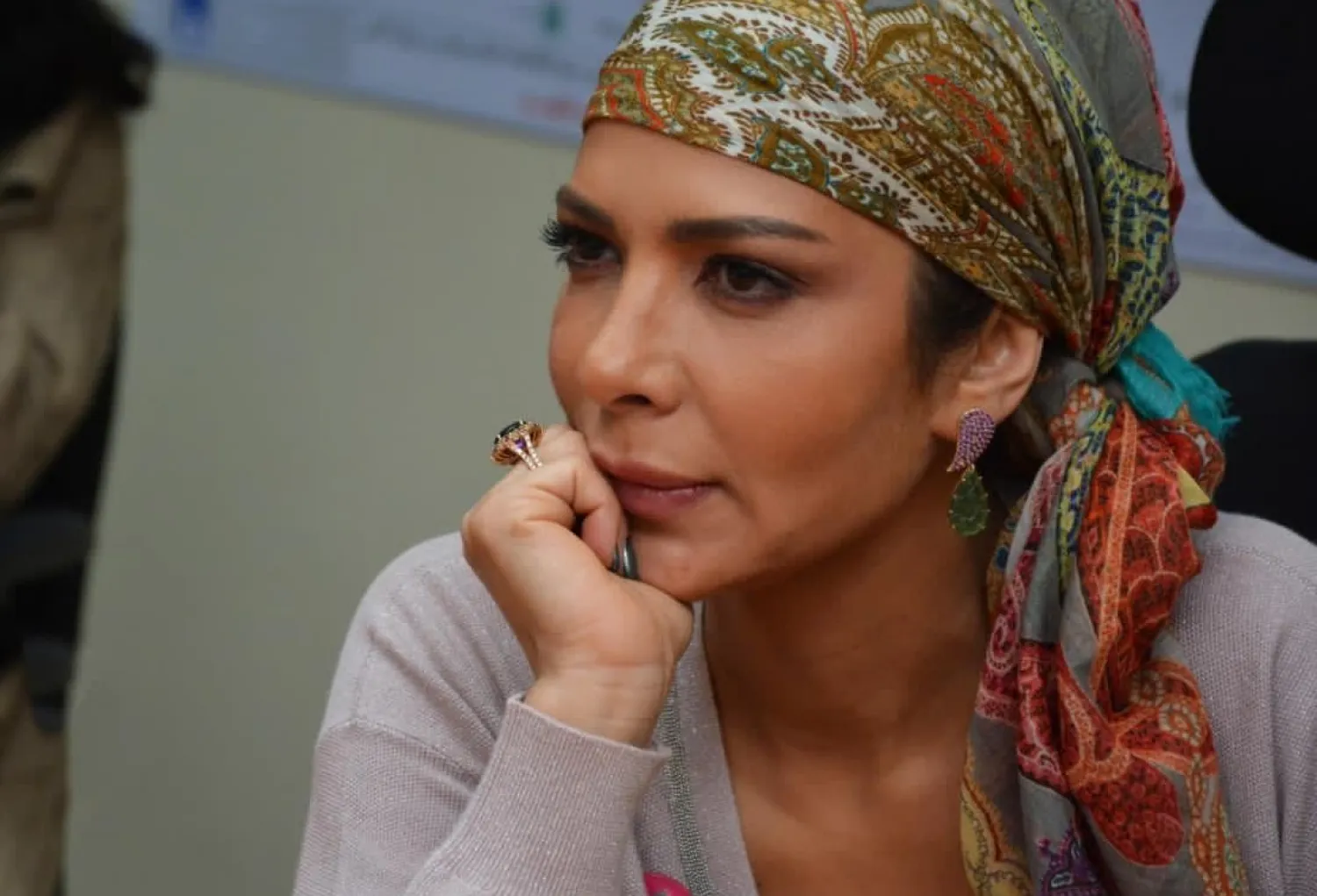Syrian artist Assala Nasri said that she is pleased with the feedback she has received over her new album “Never Give Up”, which includes 20 songs sung in the Gulf dialect. Many of the songs were recorded in collaboration with Gulf poets and producers and the album was released on several digital platforms and apps.
During her visit to Cairo's Baheya Centre for Early Detection and Treatment of Women's Cancer on Wednesday, she added that her songs “champion women's causes and express their tribulations in all their forms."
Elaborating on the album and the feedback she received, Assala told Asharq Al-Awsat that her work reflects her genuine feelings and that she chooses her words very carefully and goes over albums several times to ensure that their intended message reaches audiences.
Asked about her absence from the latest edition of the Arab Music Festival, which was organized by the Egyptian Opera House, given that she participates almost every year, she remarked: "I was unlucky to have not participated this year. I feel terrible about not being able to attend to personal circumstances, especially since it is genuinely an outlet for musical creativity." Assala stressed that she see the Egyptian Opera House as her home and singing in it as a privilege.
On her latest Gulf song album, she said: "I am a Bahraini from the Arab Gulf, and I love Gulf lyrics because they bring out the best in my voice and give me the space needed to diversify my style. On top of that, Gulf audiences are unique, and I feel the strength of their love whenever I perform a concert there.”
Asked about whether she would consider an acting role, the Syrian star ruled out the idea for the time being, saying: "It takes a lot of preparation and involves lengthy work hours."
She emphasized her support for women in general and breast cancer patients in particular: "I am a strong supporter of women on all levels, and I have an abundance of feelings and emotions through which I strive to express women's pain. I am so biased towards women that some men fear me; I always see it during my daily interactions."
Assala said that the coronavirus pandemic did not prevent her from visiting the hospital. "If this were the last journey I take in my life, I would be satisfied with the pride I felt from being able to bring joy to this large audience.”
“I hope my 27-year singing career will be full of grace and free of any blemishes. I hope this audience will remain supportive and that I will continue to feel their positive impact on my life.”









